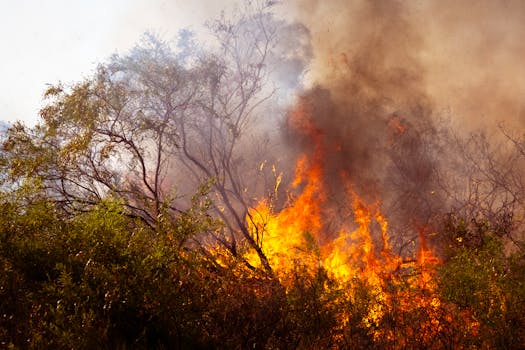
The Impact of Climate Change on Global Ecosystems
Climate change is one of the most pressing issues of our time, with far-reaching consequences for our planet and its inhabitants. Climate Change is having a profound impact on global ecosystems, from the melting of polar ice caps to the destruction of coral reefs. In this article, we will explore the effects of climate change on global ecosystems and what we can do to mitigate them.
Causes of Climate Change

Climate change is caused by the increasing levels of greenhouse gases in the Earth’s atmosphere, primarily due to human activities such as burning fossil fuels, deforestation, and land-use changes. These activities release large amounts of carbon dioxide, methane, and other greenhouse gases into the atmosphere, leading to a global average temperature increase of over 1°C since the late 19th century.
Effects of Climate Change on Global Ecosystems

The effects of climate change on global ecosystems are widespread and varied. Rising temperatures are altering the distribution and abundance of plants and animals, leading to changes in ecosystem processes and function. More frequent and severe heatwaves, droughts, and storms are also having a devastating impact on ecosystems, leading to loss of biodiversity and ecosystem disruption.
Some of the most notable effects of climate change on global ecosystems include:
- Rising sea levels and coastal erosion, leading to the loss of habitats and ecosystems
- Changes in precipitation patterns, leading to droughts and floods
- Increased frequency and severity of wildfires
- Loss of coral reefs and marine biodiversity
- Changes in the distribution and abundance of plants and animals
While the effects of climate change on global ecosystems are significant, there are steps we can take to mitigate them. Reducing greenhouse gas emissions through the use of renewable energy sources, increasing energy efficiency, and protecting natural habitats can help to slow the rate of climate change.
Some of the ways to mitigate the effects of climate change include:
- Transitioning to renewable energy sources, such as solar and wind power
- Increasing energy efficiency, through the use of energy-efficient technologies and practices
- Protecting and restoring natural habitats, such as forests and wetlands
- Promoting sustainable land-use practices, such as agroforestry and permaculture
- Supporting climate-resilient agriculture and forestry practices
Conclusion

In conclusion, the impact of climate change on global ecosystems is a pressing issue that requires immediate attention and action. By reducing greenhouse gas emissions, protecting natural habitats, and promoting sustainable land-use practices, we can help to mitigate the effects of climate change and preserve the health and resilience of global ecosystems.





